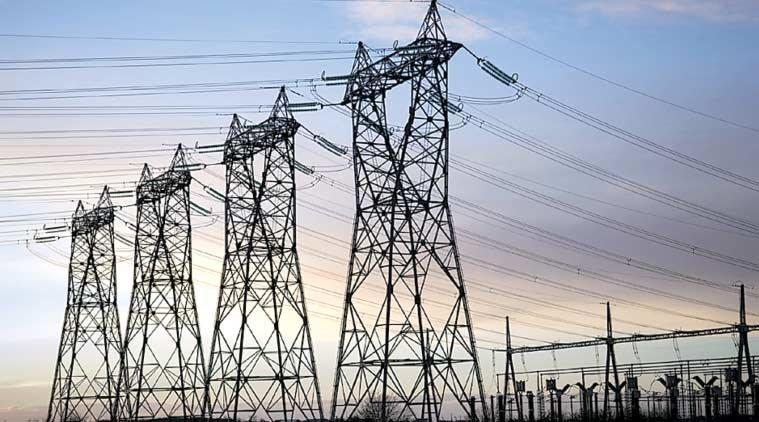As Another Private Franchisee Fails, Power Engineers to Intensify Protest Against Privatisation of Supply

New Delhi: Opposing the Union power ministry’s arm-twisting move of forcing state-owned power distribution companies to hand over the electricity supply business to private licensees or franchisees — or lose funding — power engineers in a letter to the ministry have drawn attention to the latest failure of privatised power distribution in Maharashtra.
The All India Power Engineers Federation (AIPEF) has urged RK Singh, the Union power minister, to shelve the plan of privatising power supply “in view of the long list of failures of franchisees across the country”.
Also read: ‘Privatise or Lose Funding’: Power Engineers Oppose Ministry’s Arm-Twisting Ultimatum
“The Maharashtra State Electricity Distribution Company (MSEDCL) is set to take back the power distribution of Nagpur from today (September 8) midnight from the franchisee,” said AIPEF.
The franchisee in question is SNPL — Spanco Nagpur Discom Limited — an Essel Group company.
In August, SNPL, citing its inability to handle the power distribution in Nagpur, had requested the state dsicom, MSEDCL, to take back the business of electricity supply — and the public-sector company took over from the midnight between September 8 and 9.
As per news reports, “SNDL owes its vendors about Rs 35 crore and employees are owed about Rs 15 crore.” Maharashtra energy minister Chandrashekhar Bawankule admitted that “consumers of franchisee area had suffered as SNDL had not made any investment to augment power infrastructure” and that there were several complaints against SNDL.
“We had appointed a two-member committee to enquire into the affairs of the company. On the basis of the enquiry report, we issued them three notices. They rectified 70% to 80% of their working and hence we did not terminate their contract,” the minister had said.
As the AIPEF noted, in a statement issued on September 8: “The Nagpur franchisee failure is one of the biggest in the country.”
This is only the latest instance among many of private franchisees failing to meet the needs of consumers and even failing to keep afloat, eventually asking the state to take over in the face of huge losses.
For example, a similar spectacle had unfolded in Odisha — where private franchisees saw a formal winding up and distribution was handed back into public hands. Similarly, privatisation of electricity distribution also proved to be a debacle in Delhi, among other places and cases.
Also read: The Crisis of the Power Sector Reforms – Part II
Last month, RK Singh had given an ultimatum to state-owned power distribution companies — threatening them that no financial assistance from the Centre or loans from the Power Finance Corporation would be sanctioned unless the discoms gave the supply business to multiple private-sector supply licensees or franchisees.
As AIPEF has pointed out on several occasions in the past, electricity is a concurrent subject and therefore, the Central government cannot dictate its terms to state governments.
This privatisation move — officially proposed by the government think-tank NITI Aayog in its ‘strategy paper’ in November 2018 — is essentially the content of the Electricity (Amendment) Bill 2014 and 2018.
This Bill has been opposed by power employees across the country since it was introduced in 2014.
Since 2017, when there was talk of reintroducing the 2014 draft Bill in Parliament, the power-sector workers have consistently been mobilising — and as part of efforts to mount a concerted nationwide campaign, had staged protests as part of the joint platform of the National Coordination Committee of Electricity Employees and Engineers (NCCOEEE).
The Electricity (Amendment) Bill sought to bifurcate the distribution function of the power sector into ‘carriage’ (infrastructure) and ‘content’ or the actual sale. It proposes that a government company will lay down the wires (distribution network), while private companies compete over selling the electricity to consumers and earn profits.
This essentially means that profits would be privatised while the risks and the losses are nationalised — the Bill also necessarily required one government-owned agency among the multiple licencees, presumably to cater to the less profitable sections of electricity consumers.
Similarly, last year, power employees in Uttar Pradesh had also carried out a successful agitation against the state government’s parallel move to privatise distribution activities in seven districts.
The amendment Bill was to supersede the Electricity Act 2003, which trifurcated the state electricity boards into generation, transmission and distribution — to make way for corporates enter into the more profitable aspects of generation — and which led to the ongoing crisis.
Also read: The Crisis of the Power Sector Reforms – Part I
The AIPEF in the letter said that instead of taking lessons from one failure after another — and acknowledging the poor history of privatisation/franchisee — the minister was “pressuring” and “threatening” the states.
AIPEF spokesperson VK Gupta said “almost every franchisee, which had undertaken ‘creamy city areas’ has failed in different states, to deliver power to consumers and ultimately the state discoms had to take their systems back.”
“In other places, franchisees regularly default in making payments to the power corporations.”
To protest this move, the AIPEF has planned a massive campaign. For starters, state-level conventions will be held this month “with active participation of employees, common consumers and farmers.”
A memorandum will be handed over to all Members of Parliament (MPs), Members of Legislative Assembly (MLAs) and power ministers in every state.
“This will be followed by a national workshop at Hyderabad,” said AIPEF.
Besides scrapping of this privatisation ultimatum, the AIPEF has demanded an “independent evaluation of the performance of the privatized utilities across the country” as well as the impact of this “anti-people” move on the consumers — both in terms of the cost burden and customer service. The power engineers’ federation also demanded an assessment of the financial burden foisted upon the banks by private power utilities (particularly in power generation).
Get the latest reports & analysis with people's perspective on Protests, movements & deep analytical videos, discussions of the current affairs in your Telegram app. Subscribe to NewsClick's Telegram channel & get Real-Time updates on stories, as they get published on our website.
























